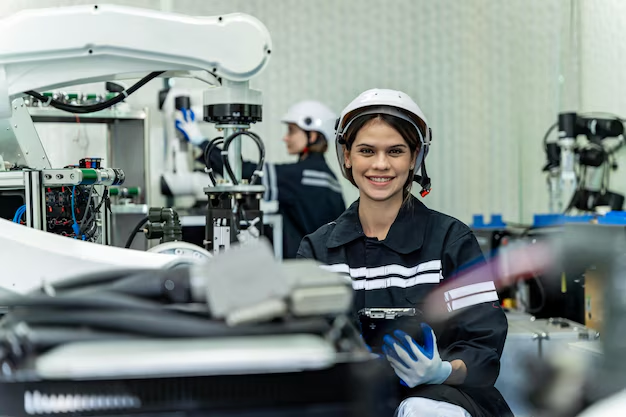The automotive Trends and Innovation in industry continues to experience rapid development, driven by technological innovation, regulatory changes, and shifting consumer preferences. In an era that increasingly prioritizes efficiency and sustainability, automotive manufacturers are competing to present vehicles that are smarter, more environmentally friendly, and integrated with digital technology.
Electric and Hybrid Vehicles
One of the biggest Trends and Innovations in the automotive industry today is the rise in popularity of Electric vehicles (EVs) and hybrids. Many countries have set ambitious targets to reduce carbon emissions, which is encouraging automakers to develop more efficient and affordable electric vehicles. Tesla, as a pioneer in the industry, continues to introduce new innovations, while traditional manufacturers such as Ford, Toyota, and Volkswagen are also launching competitive EV models.
In addition, the charging infrastructure for electric vehicles is also growing, with more charging stations being built in cities around the world. This is an important step in supporting wider EV adoption, alleviating consumer concerns about range and ease of charging.
Autonomous Technology and Connected Vehicles
Autonomous technology or self-driving cars have become one of the most talked about areas in recent years. Although still in the development stage, some manufacturers have already started implementing advanced autonomous features in their vehicles, such as automated driving on highways and automatic parking.
In addition to autonomous technology, the concept of connected cars is also a major concern. Connected vehicles enable the integration of cars with the internet and other devices, thus providing a safer and more comfortable driving experience. The use of big data and artificial intelligence (AI) in connected vehicles. Also contributes to the development of smarter navigation systems and predictive maintenance that can increase the life of the vehicle.
Mobility as a Service (MaaS)
Mobility as a Service (MaaS) is a concept that combines various transportation services, such as car-sharing, ride-hailing, and public transportation, in one digital platform. MaaS provides flexibility for consumers to choose the most efficient and economical mode of transportation based on their needs. It also encourages a reduction in private car ownership, which in turn can reduce congestion and emissions.
Several major technology and automotive companies, such as Uber, Lyft, and BMW, have invested in MaaS services, changing the way people think about urban mobility.
Innovative Materials and Design
The development of materials and design is also a focus in the automotive industry. The use of lightweight materials such as carbon fiber and aluminum helps reduce vehicle weight, improve fuel efficiency and reduce emissions. In addition, more sophisticated aerodynamic designs contribute to improved performance and energy savings.
On the interior side, passenger comfort and safety are further enhanced with the use of environmentally friendly materials, ergonomic seats, and improved passive safety technology.
Challenges and Future of the Automotive Industry
While Trends and Innovation continue to drive growth. The automotive industry also faces challenges, including global economic uncertainty, changing environmental regulations, and increasing competition. However, with a commitment to research and development, and collaboration with the technology sector, the industry is expected to continue to innovate and adapt quickly to market needs.
In the future, we will likely see more electric vehicles on the road. Increased use of autonomous vehicles, and deeper integration between digital technology and transportation. All of this points to a vision of a cleaner, safer, and more efficient future in global mobility.







